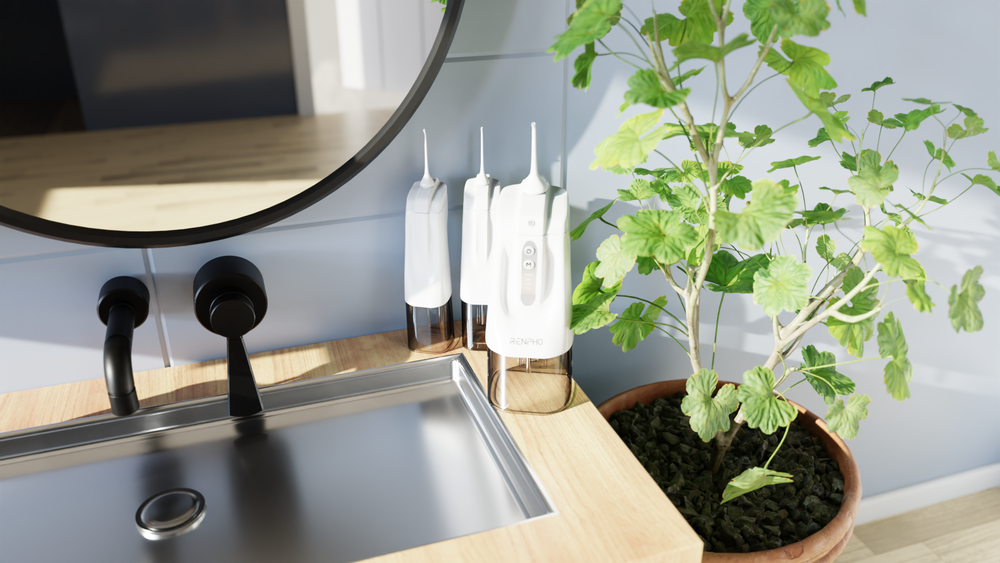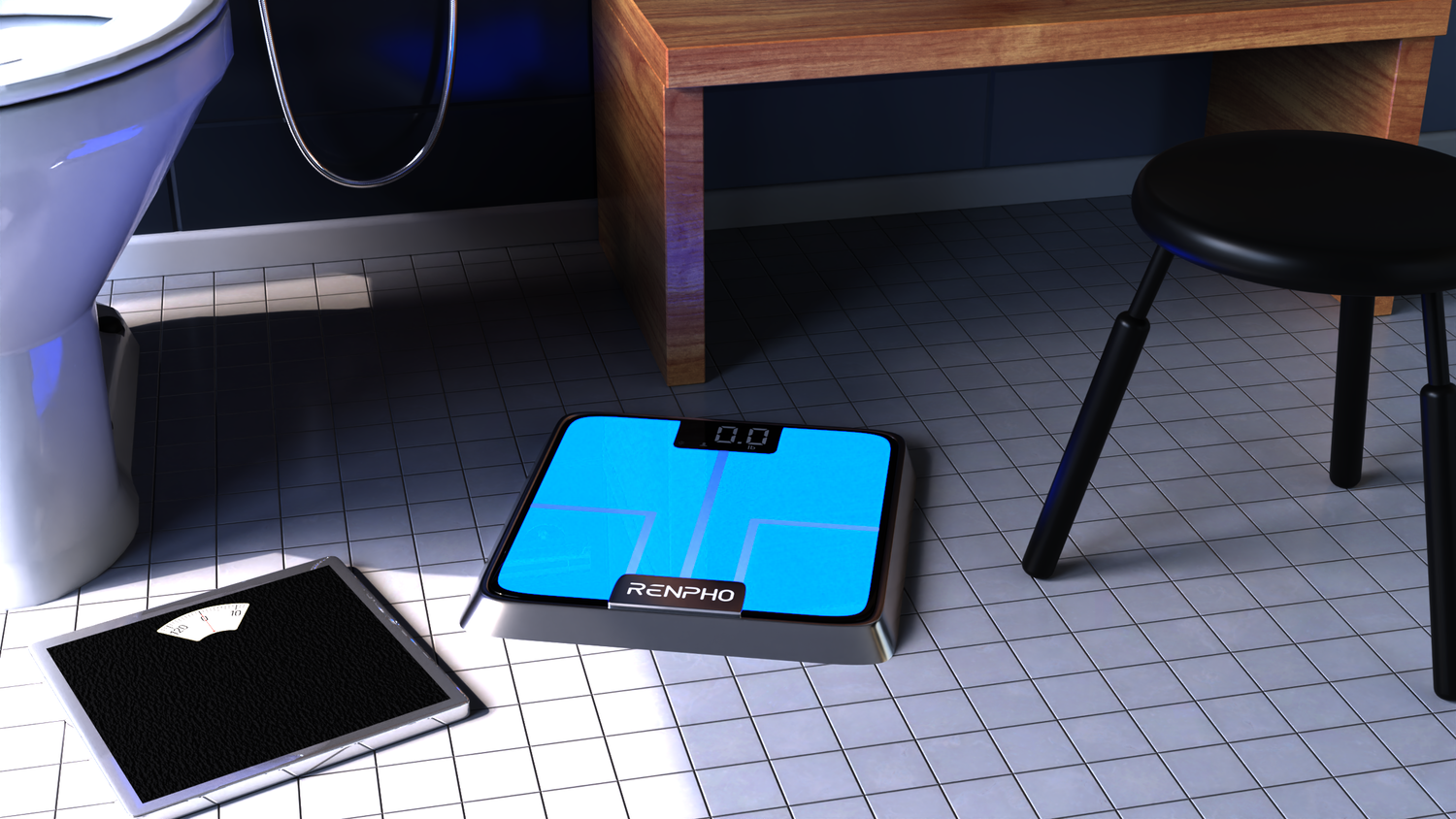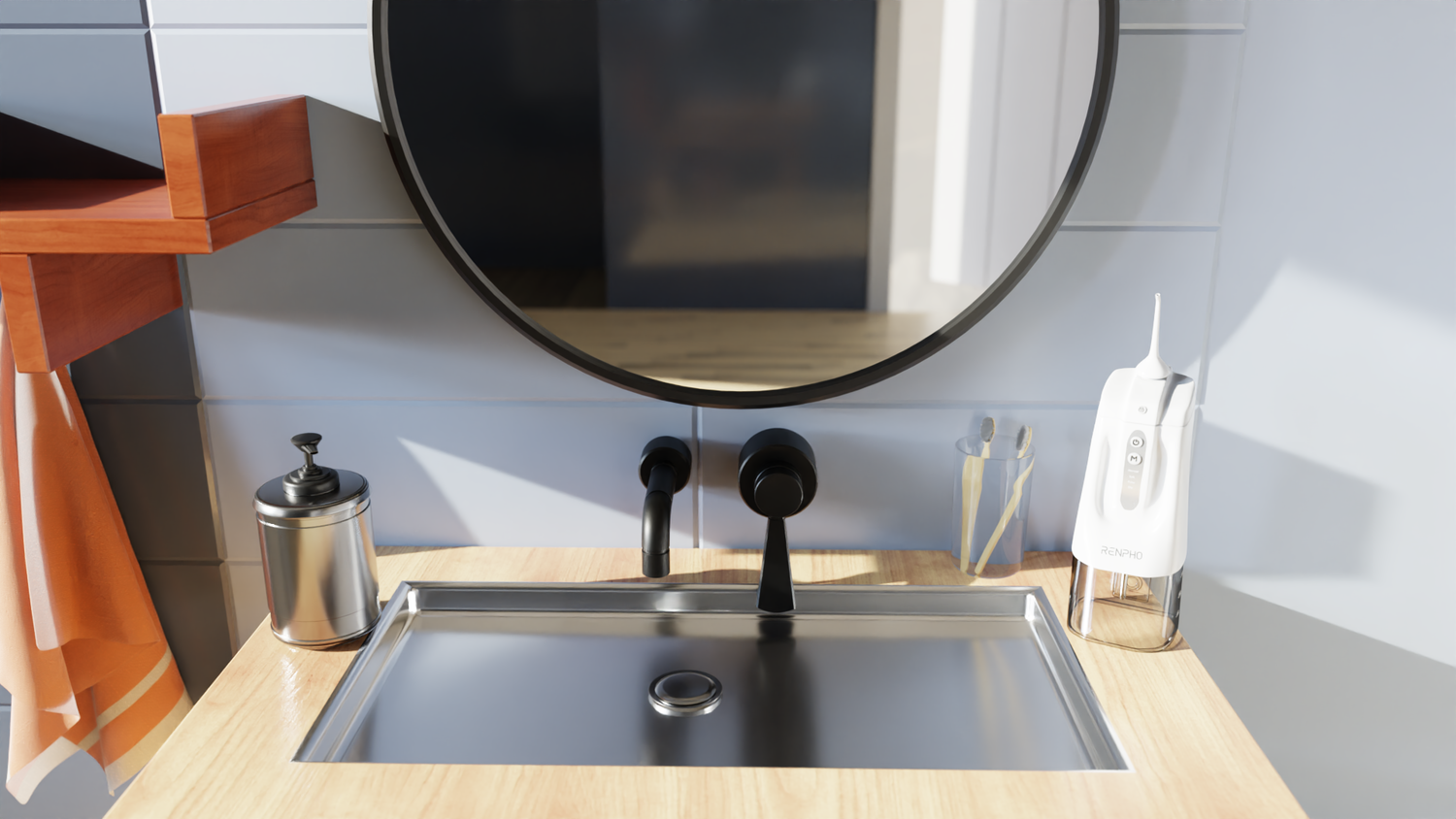Making the Right Choice: Your Essential Water Flosser Buying Guide

Stay tuned to our latest news
Caring for your oral health is crucial, and flossing is an essential step to your daily oral routine. While traditional dental floss can help, a water flosser can be a game-changer in achieving a cleaner, healthier smile. However, with so many options available in the market, finding the perfect water flosser can be a daunting task. That's why we've created this essential buying guide on what to consider when purchasing water flossers, so you can make an informed decision that suits your needs.
Whether you're a seasoned dental enthusiast or just beginning your oral care journey, this guide will equip you with the knowledge and insights to select the ideal water flosser that will revolutionize your dental routine. Explore the world of water flossers and embark on a path toward optimal oral hygiene. Let's dive in and discover how to make the right choice for your essential water flosser.
What Is a Water Flosser?
A water flosser, also known as an oral irrigator or dental water jet, is a dental tool that uses a stream of pressurized water to clean between teeth and along the gumline. It is an effective alternative to traditional dental floss, as it can dislodge debris and plaque that may be difficult to reach with floss.
Water flossers are often recommended by dentists for individuals with braces, implants, or other dental work, as well as for those with mobility issues that make traditional flossing challenging. They come in a variety of sizes and styles, from countertop models with large reservoirs to portable, cordless options for travel. With regular use, they can contribute to improved oral hygiene, healthier gums, and fresher breath.
Why Floss at All?
When we eat, bacteria in our mouths feed on the leftover food particles, producing acids that attack the tooth enamel. If these particles are not removed through regular brushing and flossing, they can lead to plaque formation, which can then harden into tartar and cause gum disease.
Bacteria quickly attach to the tooth surface, forming a sticky film called plaque that can lead to cavities and gum disease if left untreated. Flossing helps remove food particles and plaque from between the teeth and along the gum line, preventing the buildup of bacteria and reducing the risk of tooth decay and gum disease.
For those with sensitive gums, traditional flossing may be too abrasive. In such cases, a Water Flosser can be a beneficial alternative. It uses a stream of water to clean between the teeth and along the gum line, providing a less harsh and more comfortable method of removing plaque and food particles.
In conclusion, flossing is crucial for maintaining good oral hygiene and preventing tooth decay. Whether through traditional flossing or using a water flosser, it is important to incorporate this step into your daily oral care routine to keep your teeth and gums healthy.
Should You Use a Water Flosser?
A water flosser offers several benefits over traditional string floss, particularly for individuals with orthodontia, dental implants, or dexterity limitations. The water flosser effectively removes plaque and debris from hard-to-reach areas, making it ideal for those with braces or dental implants. Its gentle and pulsating action also makes it easier to use for individuals with dexterity limitations, providing an effective alternative to string floss.
Using a water flosser as part of your oral care routine can provide several overall benefits and advantages over traditional flossing. Here are some of the key benefits of using a water flosser:
- Effective plaque removal
- Gentle on gums
- Easy to use
- Customizable pressure settings
- Promotes gum health
5 Buyer’s Tips You Need to Know When Purchasing a Water Flosser

If you're considering investing in a water flosser to improve your oral health, it's important to understand the different factors to consider before making a purchase. With that said, here are five things to keep in mind that will help you navigate the options and find the best water flosser for your needs.
-
Water Pressure and Settings
Water flossers come with a variety of pressure settings and modes to cater to individual needs. The RENPHO Cordless Water Flosser offers a range of pressure settings, ranging from 30-120 PSI, allowing users to customize the water pressure to their comfort level.
In addition to adjustable pressure, many water flossers also come with different modes such as pulsing or massage features. These modes can help to enhance the cleaning experience by providing a more thorough and comfortable flossing session.
The pressure settings, modes, and adjustable pressure feature on water flossers are essential for providing a comfortable and effective oral hygiene routine. Users should consider their individual needs and preferences when choosing a water flosser with the right pressure settings and modes.
-
Tank Capacity
The water-tank size and reservoir capacity directly impact the duration of flossing sessions. A larger tank capacity allows for longer continuous use without the need for refilling. This is particularly important for individuals who prefer longer flossing sessions or for households with multiple users. Choosing a water flosser with a larger tank capacity can minimize interruptions during flossing and provide a more convenient experience.
For reference, the RENPHO Cordless Water Flosser comes with a 10-ounce tank capacity, allowing for up to 90 seconds (about 1 and a half minutes) of continuous flossing session without the need for refills. When choosing a water flosser, it is important to consider the tank capacity to ensure that it meets your specific flossing needs.
-
Cord Length
The ideal cord length for a water flosser will depend on the location of the power outlet in your bathroom. Consider the distance from the power outlet to where you plan to use the water flosser to ensure the cord will reach without any inconvenience during use. It is important to choose a water flosser with a cord length that is sufficient to reach your desired location. This will help to avoid the need for an extension cord, which could be a tripping hazard in the bathroom. It is recommended to measure the distance from the power outlet to the area where you will use the water flosser to ensure the cord is long enough. Having a water flosser with a cord length that suits your bathroom layout will ensure a convenient and safe experience while maintaining good oral hygiene. Therefore, before purchasing a water flosser, be sure to consider the location of the power outlet and the required cord length for optimal use.
On the other hand, there are cordless water flossers like the RENPHO Cordless Water Flosser, allowing you to floss without worrying about power outlets or cord length.
-
Noise Level
Water flossers typically have varying noise levels depending on the model and motor. Some models are designed with quieter motors to minimize the noise level during operation. Water flossers with quieter motors can be more desirable for users who are sensitive to noise or those who prefer a more peaceful flossing experience.
The noise level of water flossers can be a concern for users, especially in shared living spaces or when flossing at night when others are sleeping. The sound of the motor can also be distracting or disruptive for some individuals, impacting their ability to concentrate or relax while flossing.
-
Size and Portability
Lastly, the size and portability of a water flosser are essential factors for those who are frequently on-the-go or traveling. Many water flosser models prioritize compactness and lightweight designs, making them relatively easy to transport. Some models are more easily transportable than others, with key features that contribute to their portability. These features include smaller size, lightweight construction, and included travel accessories such as a travel case or compact storage options. A portable water flosser should be compact enough to fit into a travel bag or luggage without adding excessive weight. The weight of the water flosser is also an important consideration, as a lighter weight makes it more convenient to carry around. Some models are specifically marketed as travel-friendly, with a streamlined design and additional accessories like a voltage converter for international use. Ultimately, a portable water flosser should offer the same level of effectiveness as a standard-sized flosser while being convenient and practical for travel.
Takeaway
Taking care of your oral health is crucial, and flossing is an essential step in your daily oral routine. While traditional dental floss can help, a water flosser can be a game-changer in achieving a cleaner, healthier smile. It is particularly beneficial for individuals with orthodontia, dental implants, or dexterity limitations.
When purchasing a water flosser, there are several factors to consider. Look for adjustable water pressure and different modes to customize your flossing experience. Tank capacity is important for uninterrupted flossing sessions, and the cord length should be suitable for your bathroom layout. Consider the noise level, especially if you prefer a quieter operation. Lastly, if portability is a priority, choose a compact and lightweight water flosser with travel-friendly features.
By understanding these key factors and choosing the right water flosser for your needs, you can revolutionize your oral care routine and achieve optimal oral hygiene. So, explore the options, make an informed decision, and embark on a path toward a healthier smile.
Renpho Health Tips
-

Energize Your Day: 10 Superfood Recipes for Wellness That You'll Love
January 16, 2024
Read more >
-

How to Achieve Work-Life Integration: A Guide for Healthy and Productive Living
January 10, 2024
Read more >
-

Unlocking the Power of Time Blocking for Prioritizing Health Goals
January 9, 2024
Read more >
-

Which One Is Better: Analog or Digital Bathroom Scales?
January 9, 2024
Read more >
-

Why You Need a Water Flosser This 2023
November 7, 2023
Read more >




